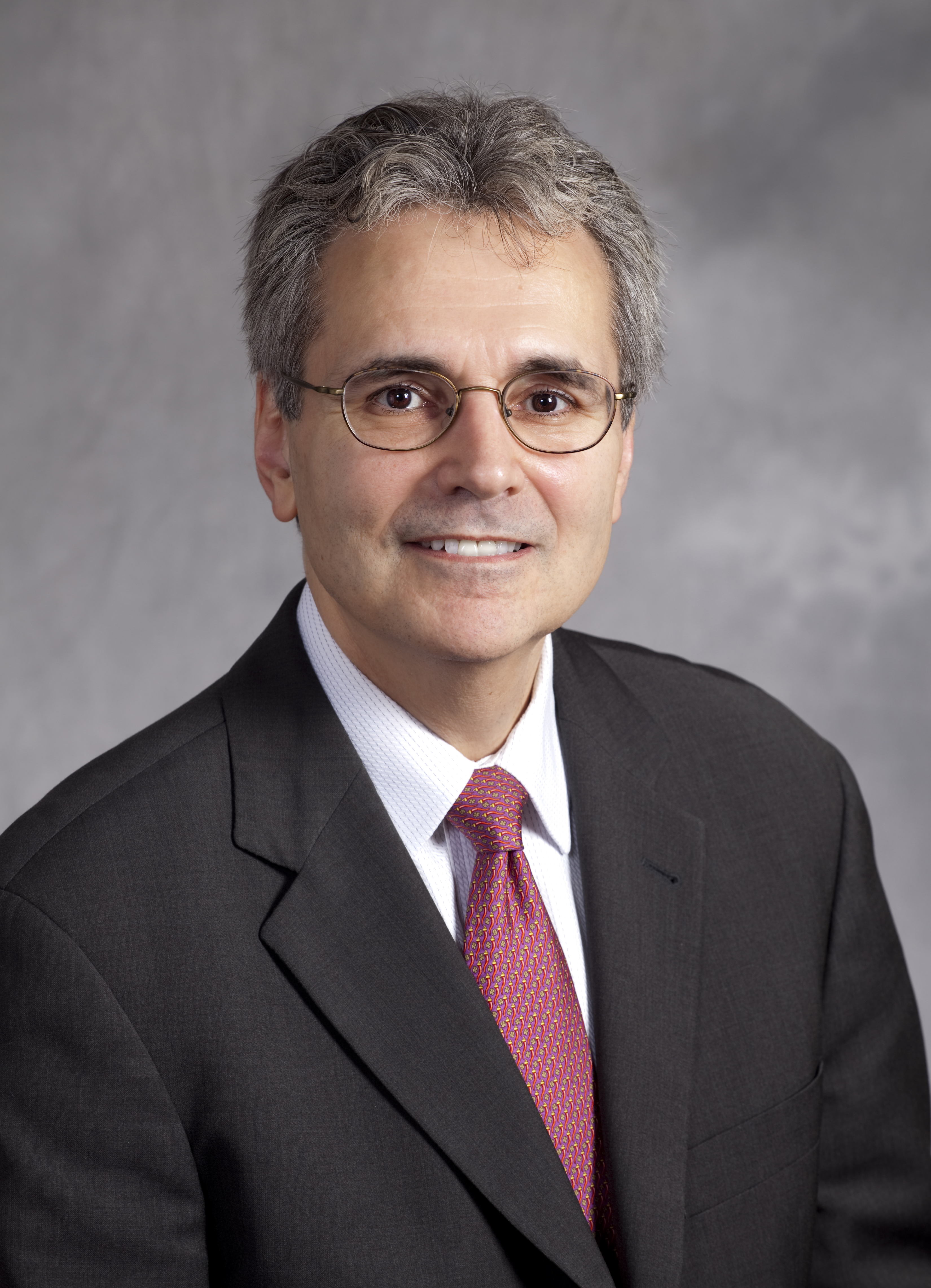President of nation’s top cancer hospital to speak on cancer and aging

With a talk on cancer and aging, Dr. Ronald DePinho, president of the University of Texas MD Anderson Cancer Center in Houston, will conclude the 2013–14 season of the Virginia Tech Carilion Research Institute’s Distinguished Scholars Series.
His public lecture will be held at 5:30 p.m. Thursday, May 22. A community reception will precede the lecture at 5 p.m. in the VTC café.
In his public lecture, DePinho will discuss recent discoveries that have led to better methods of early cancer detection, improved cancer patient care, and new cancer drugs. He will also describe how aging pushes the human body toward cancerous tumors, as well as current research into why this phenomenon occurs and how to correct it.
In his own research, DePinho has showed a link between advancing age and an increasing cancer risk. He established that three factors – telomere dysfunction, an impaired ability of a cell to repair DNA damage, and the continued renewal of the epithelial layer of tissue that covers organs – all unite to cause rearrangements in the DNA that drive the genesis of many common cancers.
Almost one million cancer patients have been treated at MD Anderson Cancer Center, which U.S. News & World Report ranked the nation’s top cancer hospital in 2013. DePinho oversees the single largest National Cancer Institute–funded research budget in the world, with more than $670 million in funding.
Under DePinho’s leadership, MD Anderson Cancer Center launched the Moon Shots Program in 2012 to accelerate the conversion of scientific discoveries into clinical advances to reduce cancer deaths. The program brings together teams of researchers and clinicians to mount comprehensive attacks on eight cancers – acute myeloid leukemia and myelodysplastic syndrome, chronic lymphocytic leukemia, melanoma, lung cancer, prostate cancer, triple-negative breast cancer, and high-grade serous ovarian cancer. In its first year, the program received $139 million in private philanthropic commitments.
DePinho’s independent scientific career began at the Albert Einstein College of Medicine, where he was the Feinberg Senior Faculty Scholar in Cancer Research. He then joined the Department of Medical Oncology at Dana-Farber Cancer Institute and the Department of Medicine at Harvard Medical School. He is a member of U.S. National Academy of Sciences and the Institute of Medicine of the National Academy of Sciences.
To learn more about DePinho and his upcoming lecture, visit the institute’s Cancer and Aging page.




